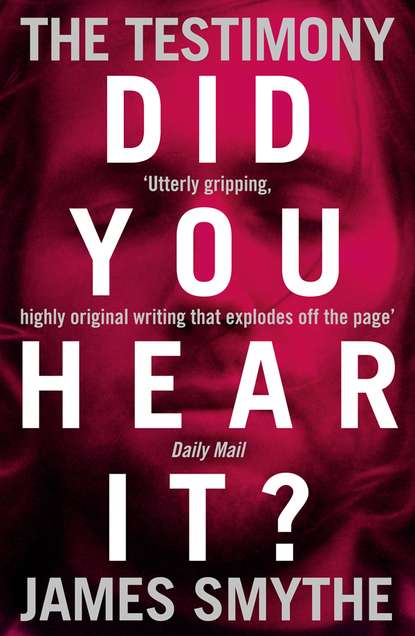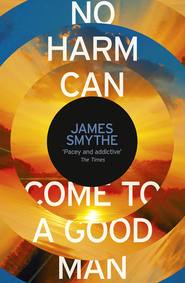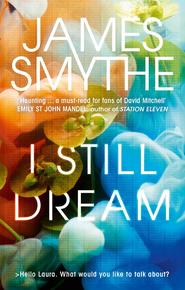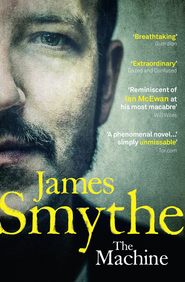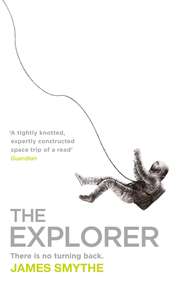По всем вопросам обращайтесь на: info@litportal.ru
(©) 2003-2024.
✖
The Testimony
Автор
Год написания книги
2018
Настройки чтения
Размер шрифта
Высота строк
Поля
When I went to unlock the church doors there was already a crowd outside. I did not have the building open for worshipping on Mondays, only on Tuesday, Wednesday, all the other days of the week. There were forty people, maybe, waiting, all the usual congregation, so I told Juanita to calm them down, park the car at the back and then go and talk to them, keep them patient. Enough, enough, I told the crowd. You have been very patient, so I will open the church in a few moments. It was so hot outside – a hundred degrees, the man on the television said – so they were sweating, fanning themselves, drinking water. Inside, the building was air-conditioned. They would have to wait for this, slightly, as I had to pack up the office in the boxes that I took over the night before; this was going to be my final sermon.
I never meant to lie to people, I kept telling Juanita. It was never my intention to cause pain, or disrupt their lives. All I wanted was to give them something, eh? Something that they could keep and hold close to their hearts. Religion, worshipping God, before The Broadcast it was something that people did because it was there, or because they wanted to feel better about themselves; like, Somebody is watching me, I am doing this for Him. I made that more real for them. My pappi, my father, also named Jesús, from the day I was born he told me that we were descended from the family of Christ. He showed me maps and drawings that his pappi showed him, drawings of our family tree, how He travelled across His lands, across Europe, across the sea to South America, and He married a woman, and they had children together, and their children had children, and so on, and that led to me. When I was growing up, that is what I knew to be true. When he died, pappi told me that it was all a lie, that he invented it all for the sake of his church; but by then I had my own church, and I had a congregation, and they knew when they looked at me that they were closer to God than they were the days before. And the money! They donated money, to run the church, to show how much their faith was worth, and I became accustomed to it. Juanita and the children, they always wanted more, more clothes, a bigger house, so I kept it up. It was not a lie; it was the way things were.
When The Broadcast came, I knew that it was over. If they have the real thing, they do not need a phoney to make them feel better, so I knew that they would turn against me, sooner or later. I came in to get the money that I left – it was in notes, all of it, and I kept it under the floor of the altar, the safest place in the city, because nobody would dare to damage an altar, nobody, not in this city. I put the money into bags, and when I was done I took them to the car, put them in the trunk, came back and opened the doors. We’re ready for you, I said, come in and worship Him on this, the best day of your lives! They came inside, and there were so many of them that they were in every seat, standing in every space they could, standing even in the doorways, until I pushed some of them back. We have to have the doors shut, I said, because otherwise the air conditioning will not work. I think that they understood.
When we were doing a blessing, near the end of the service – an old lady who could not walk, but believed that by touching me she would be cured by the Lord, listening to all of her prayers – the doors opened, and in walked Jorge Delgado, who never liked me, never came to church. He pushed through the crowd, until he was in the aisle. Nobody wanted to stand next to him, because he was dripping with sweat, and he looked ill. Jesús, he shouted, and everybody turned to look at him. Jesús, what do you have to say about this? I greeted him: Hello, Jorge, welcome to this celebration. Jesús, what do you have to say about hearing your great-great-grandpappi, eh? What do you have to say now? Jorge never believed me, always said that I was a fraud, and I knew that this would be one of those times. Sit down, I said, and we can talk when this is over, but he didn’t. It was the morning, not even twelve yet, and he was drunk. His shirt was yellow around the neck. Eh, fuck you, Jesús. You’ve been taking these people’s money for years, and now they can ask God themselves, they can ask Him if He even saw so much as a penny of it. Let’s watch you sweat now, Jesús. He pushed some people along one of the aisles, made them cram in more, sat down and put his feet up on the bench in front. I tried to ignore him, but he was there for the rest of the service, smiling at me. He looked like a wolf, I kept thinking.
When it was over – There will be no collection today, I announced, go home and just pray to our Father that we might hear from Him again soon – all the congregation left. You’re so lucky, one of them said to me, that you can be so close to Him, we are all so jealous. I know, I said, I am the luckiest man alive. When they were all gone, it was just Juanita and I and Jorge, who didn’t move. I told Juanita to wait in the car. You send her away, Jorge said, we need to talk man to man. Very sensible man, you are, which makes sense, because you have got perfect genetics, eh?
As soon as Juanita was gone, Jorge came over to me. His breath smelt of marijuana and alcohol, and the rest of his body smelt of sweat, like he hadn’t bathed in days. You are a fraud, Jesús. You’re a fraud, and I know it, because God would never have a relation like you. You give me back my mother’s money, and I will leave you alone. (His mother used to come to church, before she died; she was one of the biggest benefactors, and was much loved by the community. When she died, she left Jorge with nothing.) You give me every single bit of that money and I will not tell the news channels what a fraud you are. Of course, this made me laugh, because he had no evidence, no proof, so we were in the same situation, his word against mine. Jorge, I said, your mother’s money went to help the needy; it is not here any more, and so you cannot have it. I am sorry, but she loved you very much. God damn it, Jesús, he shouted, I want that money. There is nothing more important to me than getting that off you, and I will die before I see you leave here! Do not be a fool, I said; the devil reasons like a man, but God? He thinks of eternity. I stole that line from a film, and it made him think, for a second, before he hit me. He threw his fists at me, over and over, but I am not a fighter; I could not defend myself. He dragged me to the altar, screaming, Where is it? Where is it? but I would not say. He gave up after a while and left me there on the floor. I cannot remember much; Juanita said that my face was terrible, but the cuts were all in the flesh, all just on the skin. She watched Jorge leave the church and kick the wall as he left. I’ll be back, he kept shouting. Eventually she came inside, helped me to the car, got the money, and we left that afternoon. We didn’t lock the church, because at least that way the community could use it, and she had to drive, because I could not see. We collected the children from their school, and we drove toward the East Coast, where Juanita’s sister lived, and we could start again.
The bombs started going off as we were driving, and we stopped and spoke about it. Do we go there? she asked, Won’t it be too unsafe? I said, No, we’ll be fine; nobody will think of attacking Virginia. It’s not New York, I said. Besides, God will protect us. Thirty minutes later we heard about the next bomb, and the next, and we turned around because Juanita told me that if we didn’t, she was going to open the car door and just get out there in the middle of the road, and we headed south, toward the border, back where we had sworn we would never go.
THE SECOND BROADCAST (#ulink_588ef553-968a-5400-9c63-a9dc7c79bd8a)
Simon Dabnall, Member of Parliament, London
I had been on the tube and going to London Zoo on the morning that Princess Diana died. I remember that I had a friend down to stay from Manchester, only for the weekend, and we had been planning the trip for weeks. We didn’t hear about her death until we were on the train, when I saw it on the front of a newspaper that the man across from us was reading. Then we noticed the crying women at the other end of the train, and the driver made an announcement that, in way of tribute, London Zoo was closed for the day. No doubt the hippos wanted to wear black and curse at their gods for taking her, when she was still so young. Everybody remembered where they were when they heard the news, just as people used to say was the case when they heard that JFK had been murdered.
When I heard The Broadcast properly for the second time, I was in a cab on my way to my offices. The driver had put Radio 2 on, because he wanted to listen to the news, about the bombs in America, and he kept asking me what I thought about hearing God speak to us. I was telling him that I didn’t necessarily believe that it was God – like some mad empiricist, I needed evidence, not guesswork and hearsay – and he was exasperated, almost argumentative, and then the static came back in. I wondered for a second if it was just the radio, then remembered that we were entirely digital. It tuned in faster than it did before, the words coming in then slipping away again. The driver stopped the car, pulled over at the side of the road, got out and stood by the door. I’m sorry, he said, I need to stop. He stood there crying, and I listened to the newsreaders react, terrified, elated.
Do Not Be Afraid, the voice said.
My Children; Do Not Be Afraid.
Dafni Haza, political speechwriter, Tel Aviv
The voice was somehow more tangible the second time, but still, there’s no way to put a finger on it, or to say what it even sounded like. The closest thing I can describe it as is that voice in your head that you hear when you tell yourselves to do something, or to not, that moral niggle. It was that, but different. I don’t know.
Anyway, when we heard it the second time, I knew the public reaction would be worse still, or at least harder to deal with; especially in Jerusalem, because of the pilgrimages. We had a difficult time anyway, managing the people who came to us for their religious outlet, journeying from Bethlehem to Jerusalem, then driving to Nazareth; we knew that they would cause us more problems, and we had already put out statements urging them to return to their hotels and stay there until we knew what The Broadcast was. As soon as it told everybody DoNot Be Afraid we knew we would have more problems. It’s like a mother telling her children that they can’t have a treat: it’s only ever going to cause tantrums. And the American situation was tenuous at best: everybody knew that they were looking at Iran as responsible for the bombings, which meant they were looking at them for answers about The Broadcast as well. Wasn’t it conceivable, the Prime Minister asked me when she called after it happened, that they somehow engineered The Broadcast to give them an excuse for everything else that happened? When I got off the phone from her, I saw that Lev had called again, and then we started hearing about violence on our side of the West Bank, worse than it had been; they said that there were bomb threats being called in, that the PLO had taken that chance to make their move. Ever since we agreed on terms about how to divide the land it had been a threat, that their more extremist side would show its face. And we were so close to reaching peace – or something that resembled peace, after so many decades of it being hellish – that any sort of extremism was likely to ruin it all. As soon as we saw that on the news, I had another call from the Prime Minister, and we wrote a statement that tried to distance our government from any potential retaliation. I said to the Prime Minister, why are you talking to me directly? I’m just a speechwriter, and she said, the Head of Communications has just quit, so you’re what I’ve got.
I’ll take the job, I said. Of course I’ll take the job.
Dominick Volker, drug dealer, Johannesburg
Ag, that fucking place was a nightmare. I was out working, trying to collect from some of my dealers. I would sell to students, and they would sell it on for me, but I needed people to work the rough districts. I mean, nobody was going to fuck with me, but that doesn’t mean I wanted to be there. And then, just as I was getting nervous, the second Broadcast happened, and I thought, for a second, it was speaking to me, you get me? Do Not Be Afraid, like a heads-up that I would be alright.
Phil Gossard, sales executive, London
It happened again when we were back in the office. Three days after it first came into our lives, and we had stuff to catch up on; or, more realistically, prepare for, because the US branch wouldn’t open again for days, so we had to cover them. Jess’ school was still closed, though we still weren’t sure why. Karen had joked that the nuns were planning terrorist counter-attacks. They’re too busy building false habits from Semtex, she said. We weren’t even close to being as locked down as the US, though. Everything there that couldn’t be vigilantly defended, it seemed, was just closed, hang the consequences. There was something different about their government’s reaction, though, to whenever this happened before. I remember when I was a teenager, when 9/11 happened, and they were so aggressive, so bull-headed. And that’s not a criticism; it’s what they needed. Here, they just seemed resigned, like they were almost disappointed that it was so small, that there wasn’t more in the way of noise and fury. There were no planes crashing into buildings; this was grass-roots stuff at its finest.
The sandwich man came, because these things repeat themselves, foreshadow themselves, the universe giving you constant hints of what’s to come if you know what to look for; I had a ploughman’s. I was sitting down about to eat – it was only just gone eleven, but I hadn’t eaten any breakfast because of having to sort out sending Jess to a friend’s house – and then it – He, It – spoke again through the static. It felt like a goodbye, to me. Most people didn’t agree, but I thought that it definitely felt like a goodbye, or the first stages of one. It felt like one of those conversations you have with a girlfriend, when they sit you down and say that you need to talk. It felt like that, and everybody knows what that actually means, when you have that conversation.
Вы ознакомились с фрагментом книги.
Приобретайте полный текст книги у нашего партнера:
Приобретайте полный текст книги у нашего партнера:





